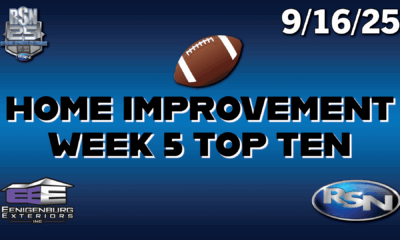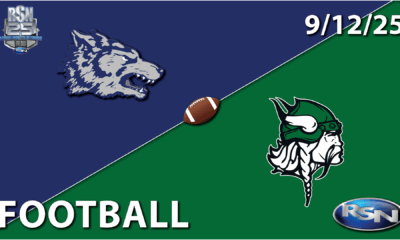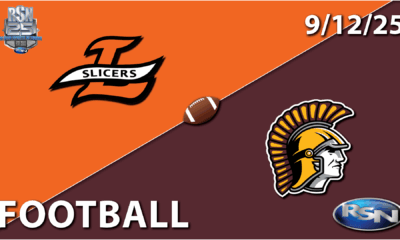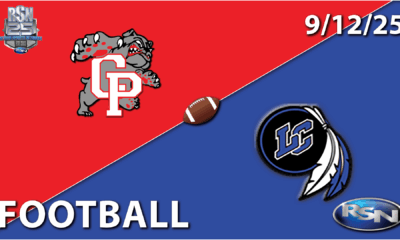A monumental challenge
The high school football playoff system was different in 1979 than it is today, in many ways. For starters, there were only three enrollment classes. Hobart and Penn, laughable as this seems today, played together in the largest class, 3A. Second, the postseason was not a come-one, come-all affair, a system that is so entrenched today. (And, in fact, an oddity among the states.)
Although Hobart had been a one-loss team in 1978, it had not qualified for the state playoffs under the rigorous system in place in Indiana at that time. And this was considered an especially disappointing near-miss because of the flood of talent that had graduated the following spring.
“Nobody had high expectations for us,” recalls Steve Lach, a senior offensive lineman on the ’79 team. “We weren’t big. We weren’t fast. We didn’t really have that much.”
After an early-season scrimmage, coach Howell was asked by a reporter how he thought this new-look Brickies team was coming along.
“We broke a huddle correctly today,” Lach remembers Howell saying in one of the local papers. “Oh, man,” Lach says. “In your face. Challenge.”
Penn, like the No. 2-ranked Brickies, entered the contest undefeated. They were also, basically, unchallenged. Penn’s senior class had not lost a game since beginning football together in junior high. In 1979, entering the regional title against Hobart – there was no semistate back then – the Kingsmen defense had shut out seven opponents. Penn outscored its opponents 322-27 entering the Hobart game.
A lesser group may have wilted when faced with that tone from its head coach. But Howell had read his group correctly. Although often undersized as compared to its opponents, Hobart kept winning that fall, week after week. One of the reasons was sheer determination as compared to its foes. Another was the junior quarterback, Kobza. Then, as it is now in many ways, high school offenses were run-first, pass-second by design. And that was especially true in November, when the footing and the ball became slippery and hands got numb. But the Brickies neutralized whatever disadvantages they had by putting the ball up in the air far more than most teams in the era. That was true in the team’s opening playoff victory, over Munster, when it threw 18 times. And it would be especially true against Penn’s Kingsmen.
The season before, the Kingsmen had led Fort Wayne Dwenger 18-6 deep into the second half of the regional. Dwenger, however, charged back in that game, ending Penn’s state dream a step short. Unlike in Hobart, however, expectations were high at Penn the next year, with eight returning defensive starters in ’79.
The Kingsmen were intimidating and they knew it. They shaved their heads to look even scarier, some of them leaving only their jersey number outlined in hair on their scalp. A potential blowout, the Brickies feared, was in the crisp fall air.
“They were walking around the field and going up to our fans and posing and trying to intimidate because of their size,” Lach says. “I thought, ‘Holy crap, these guys are men, and this is going to be entertaining to say the least.”
For Hobart, the first few minutes would be critical.
“We needed to get off to a good start to show we were just as good,” Galovic recalls.
“We kind of put those guys on a pedestal,” Keller says. “I think everybody thought they were the underdogs, but we looked at it as if we were the underdogs. Coach (Chris) Geesman was a great motivator and he motivated us that way: ‘This is the best football team in the state of Indiana, and we’re gonna see if we match up with these guys.'”
What the Brickies could not have known at the time was that Penn harbored the same level of fear and awe about their opponent that night. The Kingsmen, recalls Brent Keller, a senior free safety for Penn in 1979, were well aware of a recent run that saw teams from Hobart’s Duneland Athletic Conference win three consecutive Indiana state championships. Valparaiso had won it in 1975, followed by Merrillville in ’76 and Portage in ’77.
Twelve fan buses traveled from the Mishawaka area to Hobart to cheer on the Kingsmen, who just like Hobart were seeking their first state title game berth.
“Two undefeated teams and two storied programs,” Keller says. “We wanted to see if we could compete with them. We had played in front of 10,000 people four or five times in my career. We were used to that. But it was neat because it seemed much smaller there at the Brickie Bowl. There were people all around us. It was like we couldn’t breathe.”
CLICK HERE FOR PART 3




















